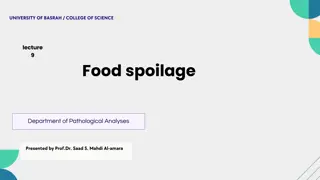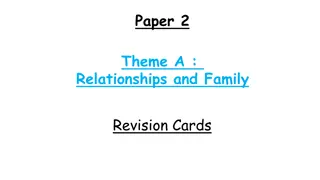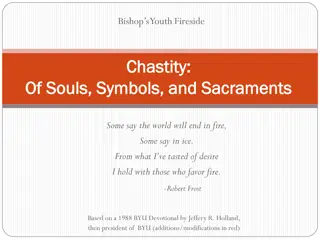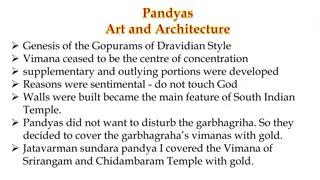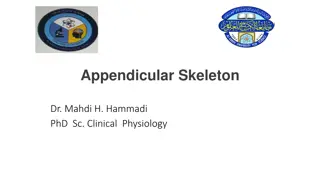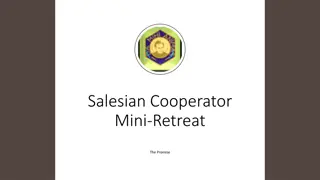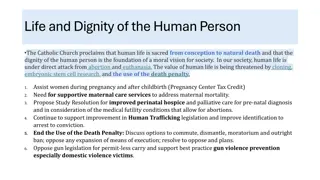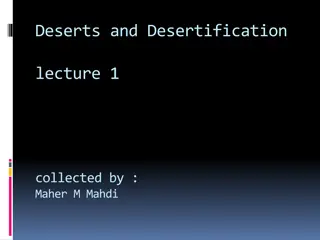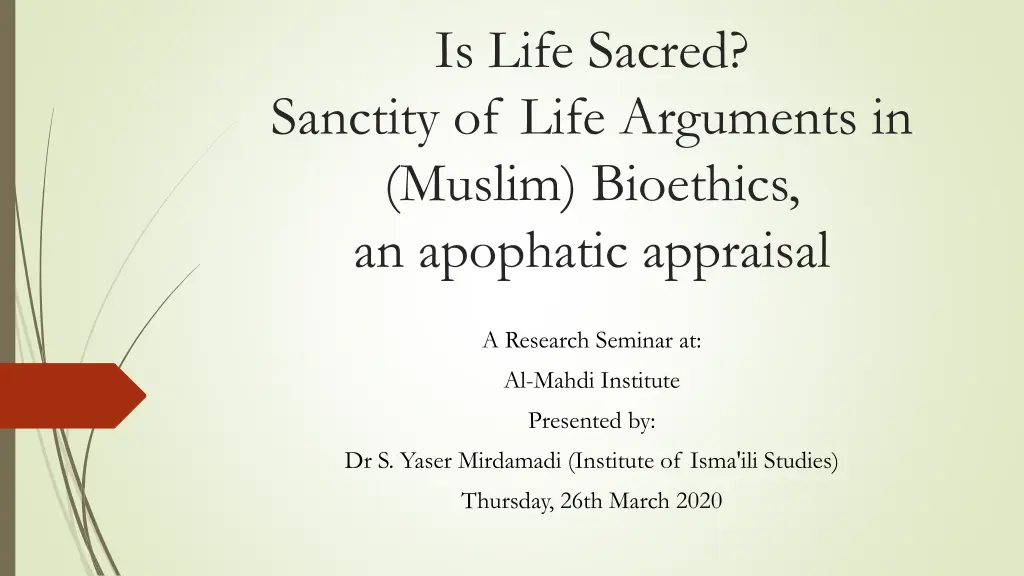
Understanding the Sanctity of Life in Muslim Bioethics
Explore the foundations of the sanctity of human life theory in Muslim bioethics, its religious and philosophical implications, and its relevance in ethical discussions on issues like abortion and euthanasia. Delve into the religious, Abrahamic, and Islamic roots of this theory to gain a comprehensive understanding of its significance.
Download Presentation

Please find below an Image/Link to download the presentation.
The content on the website is provided AS IS for your information and personal use only. It may not be sold, licensed, or shared on other websites without obtaining consent from the author. If you encounter any issues during the download, it is possible that the publisher has removed the file from their server.
You are allowed to download the files provided on this website for personal or commercial use, subject to the condition that they are used lawfully. All files are the property of their respective owners.
The content on the website is provided AS IS for your information and personal use only. It may not be sold, licensed, or shared on other websites without obtaining consent from the author.
E N D
Presentation Transcript
Is Life Sacred? Sanctity of Life Arguments in (Muslim) Bioethics, an apophatic appraisal A Research Seminar at: Al-Mahdi Institute Presented by: Dr S. Yaser Mirdamadi (Institute of Isma'ili Studies) Thursday, 26th March 2020
Outline The meaning of the sanctity of life theory The religious formulation of the sanctity of life theory The Abrahamic Roots of the Sanctity of Life theory The Islamic Roots of the Sanctity of Life theory Two cases: abortion and euthanasia Apophatic arguments against the Sanctity of life theory
What is Sanctity of Life The theory typically referred to as the sanctity of human life is a theory that takes human life as having an inherent value that gives human beings a unique and special status among other animals. a sui generis protection is thereby assumed for the human species The sanctity of life theory has both religious and philosophical foundations and it is appealed to in a wide range of biomedical-ethical issues such as abortion, euthanasia, genetic engineering, and organ transplants, mostly to argue against their permissibility on ethical grounds.
The Religious formulation of Sanctity of Life theory The sanctity of human life theory has been widely considered as a mainly, but not exclusively, religious theory. The religious (es. Monotheistic) advocates of the theory may have argued for it religiously in the following way: 1. Humanity, is created in the image of God. 2. Whatever is created in the image of God has for this very reason a special value or dignity. 3. Hence, humanity has a special value or dignity. Premise 1 is taken from Genesis 1: 27 in which it is said: God created human beings in his own image.
The Abrahamic Roots of the Sanctity of Life The basic assumption of sanctity of human life in Jewish tradition is expressed by the Mishna:3 Whoever destroys a soul, it is considered as if he destroyed an entire world. And whoever saves a life, it is considered as if he saved an entire world. In the New testament since human beings have been created in the image of God, imago Dei, (Genesis 1: 26, 27) the loving God is then within us. the sanctity of human life has also been grounded by the Christian church in the doctrine of the incarnation, the enfleshment of God in the human person of Jesus Christ. According to the argument from incarnation for the sanctity of human life the fact that God became human in Jesus of Nazareth, and then died for human beings is an affirmation that human life has unique worth and value.
The Islamic Roots of the Sanctity of Life theory Human being is widely considered by Muslims as God s noblest creatures since God has breathed his spirit into the human being (the Qur an, 15: 29; 38: 72). This is usually interpreted by Muslim jurists in a literal way as meaning that God has breathed his spirit into every human body, male and female, at a certain stage of its embryological development. In Islam due to the divine root of human creation, the value of a single human bears the value of humankind altogether: We prescribed for the Children of Israel, shall be as if he had slain mankind altogether; and whoso gives life to a soul, shall be as if he that whoso slays a soul not to retaliate for a soul slain, nor for corruption done in the landhas given life to mankind altogether (the Qur an, 5: 32, Arberry s translation).
Two Cases: 1- Abortion 1. Human life is intrinsically valuable in such a way that its value overrides other conflicting matters (the sanctity of life theory). 2. Foetus, as a human being, has a human life. 3. Therefore, abortion, as an instance of intentionally terminating human life, is morally wrong. Abortion before 120 days of gestation or after it without medical reasons (when Mother s life is in danger) is considered unlawful by Muslim jurists. Some Hanafi jurists permits abortion before 120 days even without medical reasons though with the husband s consent.
Two Cases: 2- Euthanasia 1. Human life is intrinsically valuable in such a way that its value overrides other conflicting matters (the sanctity of life theory). 2. Euthanasia violates the intrinsic value of human life, 3. Therefore euthanasia is, in principle, not morally permissible. Muslim jurists do not allow active euthanasia and physician-assisted suicide but some allow non-voluntary passive euthanasia: Though the strict version of sanctity of life argument, which does not take active- passive distinction morally relevant, does not seem to permit even passive euthanasia, a moderate version of sanctity of life argument can permit passive euthanasia.
Two Cases: 2- Euthanasia (cont.) The position of the Council of Islamic Jurisprudence and Organization of the Islamic Conference: In the case of a patient whose body has been hooked up to life support, it is permissible to remove it if all his brain function has ceased completely, and a committee of three specialist, experienced doctors have determined that this cessation of function is irreversible, even if the heart and breathing are still working mechanically with the help of a machine
Apophatic arguments against the Sanctity of life theory 1. (premise) The sacredness (sanctity) is reserved only for God 2. (Apophatic premise) God is unsurpassably above and beyond (both ontologically and epistemologically) 3. (premise) Human is not God 4. (conclusion 1) Humanity is not intrinsically sacred 5. (conclusion 2) Human life as such is not sacred 6. (conclusion 3) the Sanctity of life argument is not defensible. This apophatic model of sanctity is not against acquired sanctity (acquiring sanctity through cultivating virtue) rather, it is only against the intrinsic model.




